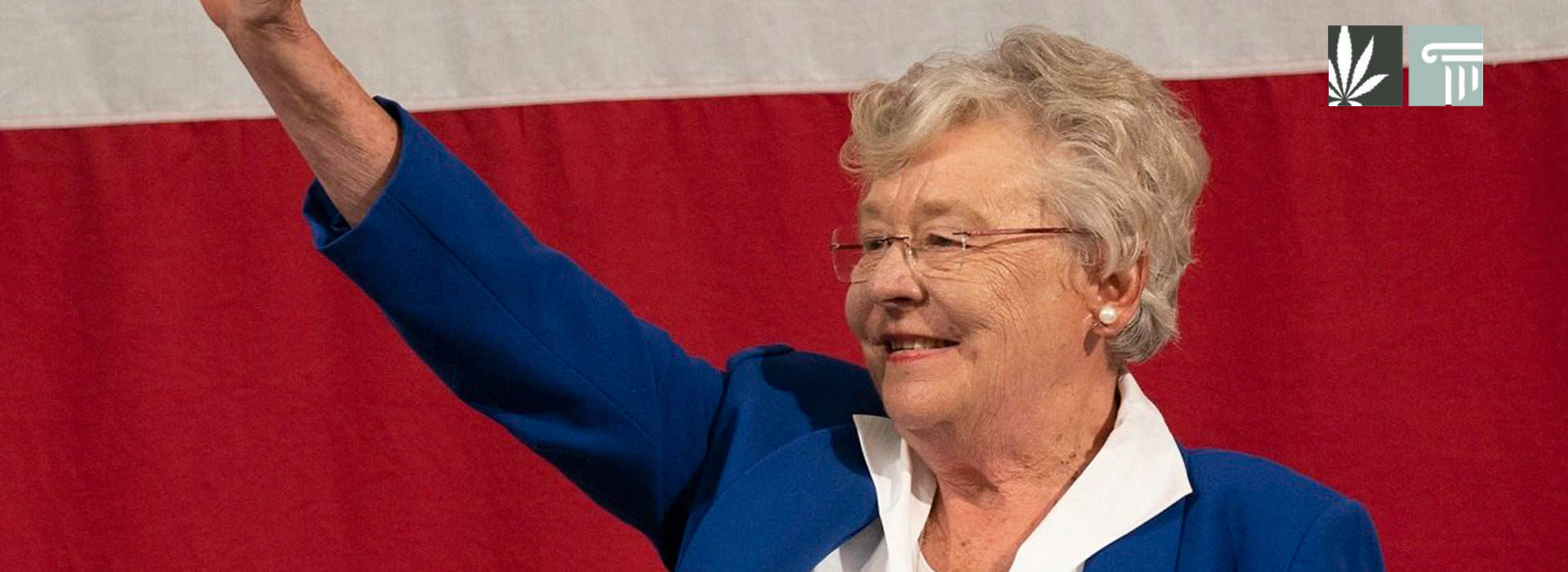The governor of Alabama signed a bill to legalize medical cannabis into state law without proposing any amendments to the legislation.
The measure – SB 46 – passed both the House and Senate by two-to-one margins, and while Gov. Kay Ivey (R) has been favorable to past medical marijuana proposals, her spokesperson said she would be “thoroughly reviewing it” before committing her signature, leading some to presume she would recommend amendments for the legislature to look at.
That could have delayed progress significantly as, despite the comfortable margin of support in the legislature, some Republican lawmakers were outspoken in their opposition to the bill, going as far as to stage a drawn-out filibuster to delay the final votes. In the end, however, Ivey signed the bill as it is and indicated in a press statement that she’s open to further marijuana reforms.
“Signing SB 46 is an important first step,” Ivey said. “This is certainly a sensitive and emotional issue and something that is continually being studied. On the state level, we have had a study group that has looked closely at this issue, and I am interested in the potential good medical cannabis can have for those with chronic illnesses or what it can do to improve the quality of life of those in their final days.”
I've signed SB 46 pertaining to medical marijuana. I would like to thank Sen. Tim Melson & Rep. Mike Ball for their hard work over the last few years & their commitment to continue to work on this to ensure we have a productive, safe & responsible operation in AL. #alpolitics pic.twitter.com/2IUBZVEKpI
— Governor Kay Ivey (@GovernorKayIvey) May 17, 2021
The approved legislation will, in effect, establish a restrictive medical marijuana program in Alabama for patients with one or more of around 20 conditions, such as anxiety, depression, intractable pain, post-traumatic stress disorders and sleep disorders, following a consultation with a physician authorized to recommend marijuana as a treatment. In order to obtain such authorization, the physician must undertake a four hour course and pass a subsequent exam at a cost of $500. The doctor must then take refresher courses every two years to retain their authorization.
Alabama’s medical marijuana program would be regulated and administered by the yet-to-be established Alabama Cannabis Commission which will not be allowed to add more conditions to the list that qualifies for medical marijuana treatment. The measure also prohibits cannabis flower, smoking, vaping and marijuana-infused edibles. Instead, the only permitted consumption methods include capsules, lozenges, inhalers, oils, topical patches and suppositories.
The new law also does not allow for out-of-state prescriptions, meaning medical marijuana users from another state cannot legally bring their cannabis with them into Alabama.
To obtain a medical marijuana card, patients with an authorized physician’s recommendation must register electronically with the Alabama Cannabis Commission and pay a maximum of $65. Once issued with their card, the patient can then purchase medical cannabis products from a licensed dispensary.
The bill also sets a timeline for Alabama’s medical cannabis program to get up and running. The Alabama Cannabis Commission must be formed with 14 members by July 1, 2021. The specific rules governing physician certification must be announced by December 1, 2021, and the electronic patient registry must be operational by September 1, 2022. Even then, in order for a medical cannabis dispensary to open in a jurisdiction, it must first be approved through a local ordinance resolution.






